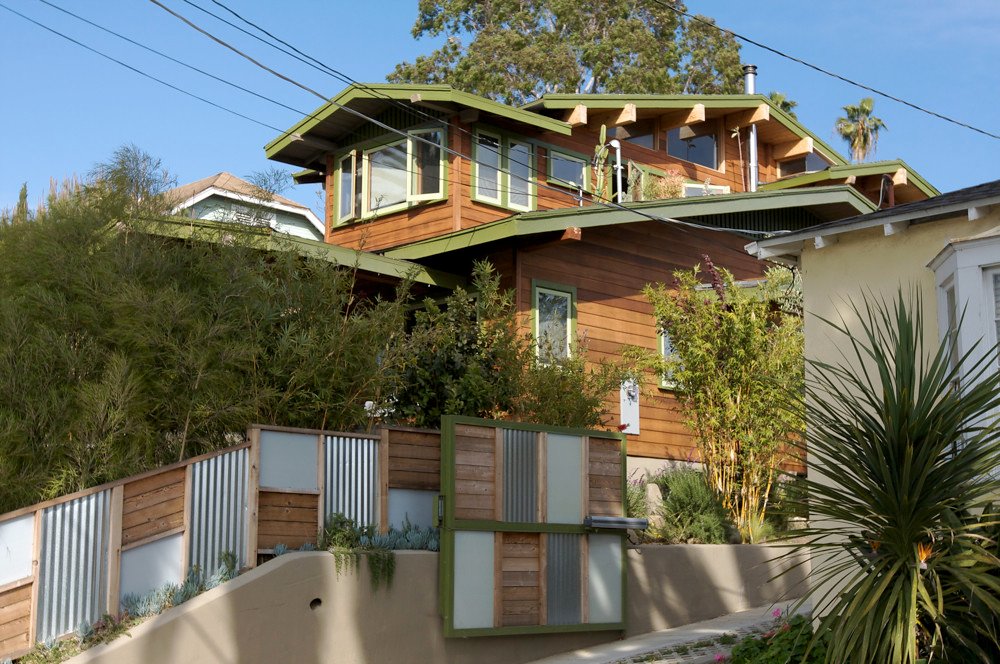Table of Contents Show
As a homeowner, it’s natural to want your space to reflect your personal style and aesthetic. However, home renovation projects can quickly become costly if not properly planned and budgeted for.

If you are searching denver custom home architects we will explore some tips and strategies for budgeting effectively while still achieving your desired design goals during your renovation project.
Whether you are planning a full-scale remodel or simply updating a room or two, these insights will help ensure that managing costs doesn’t leave you feeling overwhelmed or financially strained.
Planning Your Project
When planning a renovation project, it is essential to establish clear goals that align with your budget and timeframe.
These goals could include increasing the value of your property, improving functionality or aesthetics, or simply creating a more comfortable living space for you and your family. Whatever the goal may be, it is important to have a clear understanding of what you want to achieve before beginning any work.
Once you have established your main goals for the renovation project, it’s time to develop a plan for measuring progress. This can include setting specific milestones throughout the process such as completing demolition or finishing electrical work by certain dates.
Additionally, tracking expenses regularly will help ensure that costs stay within budget and provide insight into where adjustments may need to be made.
Read Also:
What Items Need to Be Replaced, Updated, Or Repaired?
When renovating your home, it’s essential to identify which items need to be replaced, updated, or repaired.
This will help you create a realistic budget and ensure that all necessary work is completed. Some of the most common areas that need attention include flooring, walls, lighting fixtures, and appliances.
It’s important to evaluate the condition of your existing flooring when planning a renovation project. If your floors are worn out or damaged beyond repair, replacement may be necessary.
The cost of new flooring can vary widely depending on the materials used and the size of the area being covered.
Another area that may require updating during a renovation project is your lighting fixtures. Old or outdated lights can make a room feel dull and uninviting.
Upgrading to modern fixtures can provide more light while also enhancing the overall aesthetic appeal of your space. Similarly, appliances such as ovens or refrigerators may need replacing if they are outdated or no longer working properly.
How Much Money Do You Need to Renovate Your Home?
When it comes to renovating your home, a budget is always necessary. The cost of renovation projects can vary greatly depending on the size and scope of the project as well as the materials used.
Before beginning any renovation work, it’s important to set a realistic budget that takes into account all potential expenses.
The first step in creating a renovation budget is to determine what areas of your home you want to renovate.
This will help you estimate costs for materials, labor, and any additional expenses such as permits or inspections. You should also consider whether you plan on doing some or all of the work yourself.
When estimating costs for your renovation project, it’s important to factor in unforeseen expenses that may arise during construction, such as unexpected repairs or changes to the original plans.
It’s always better to overestimate rather than underestimate when creating a budget so that you have enough funds to cover any extra costs that may come up along the way.
By taking these steps and carefully planning out your renovation project from start to finish, you can ensure that you have a realistic budget in place that will help make your dream home a reality without breaking the bank.
Who Can Help with The Renovation Project And What Are Their Prices?
Finding the right contractors for your renovation project can be a daunting task, especially if you are on a budget. It is important to do your research and shop around for prices. You can start by asking friends and family members for referrals or searching online directories to find reputable contractors in your area.
Once you have a few options, it’s important to get quotes from each contractor so that you can compare their prices and services.
Be sure to ask about any hidden fees or additional costs that may arise during the project. Keep in mind that cheaper isn’t always better – it’s important to find someone who is experienced, reliable, and has good references like True home design build.
When budgeting for your renovation design project, make sure you factor in the cost of labor as well as materials. You may also want to consider hiring an interior designer or architect who can help with the planning process and ensure that everything runs smoothly.
Ultimately, finding the right contractors at an affordable price will take some time and effort but it will be worth it in the end when you see your vision come to life within budget!
How Do You Choose the Right Designer And What Is Included In Their Fee?
When it comes to budgeting for your renovation design project, choosing the right designer is crucial. A skilled designer will not only help you achieve the look and functionality you desire but will also ensure that the project stays within budget.
To choose the right designer, start by reviewing their portfolio and client testimonials. This can give you a sense of their design style, work quality, and ability to stay on schedule.
Once you’ve found a designer you like, it’s important to understand what is included in their fee. Most designers charge either an hourly rate or a flat fee for their services.
Hourly rates vary depending on the level of experience and location of the designer. Some designers may also charge a percentage of the total project cost as their fee.
It’s important to clarify with your chosen designer what exactly is included in their fee – this can range from creating design plans to overseeing construction and installation – so there are no surprises down the line when additional charges come up.
Financing The Renovation
When it comes to financing a renovation project, there are several options available. The most popular financing options include personal loans, home equity lines of credit (HELOCs), and credit cards.
Personal loans are an excellent choice if you need quick cash for your renovation project. However, they usually come with high-interest rates and short repayment terms.
On the other hand, HELOCs offer more extended repayment periods and lower interest rates because they use your home’s equity as collateral. However, this option carries significant risks if you fail to repay the loan on time since it could lead to foreclosure of your property.
Finally, using credit cards can be a convenient option for small-scale renovations or emergencies. But unless you pay off the balance quickly, you may end up paying high-interest rates.
Conclusion
In conclusion, budgeting for a renovation design project is an essential aspect that should not be overlooked. The process can be overwhelming and stressful, but with proper planning and organization, it can be manageable.
It’s crucial to have a clear understanding of your goals and priorities before starting the project to avoid overspending on unnecessary expenses.
One way to stick to your budget is by prioritizing the most important aspects of the renovation project first. This means focusing on critical areas such as electrical work, and plumbing fixtures before considering aesthetics like paint colors or flooring options.
Additionally, you can save money by shopping around for materials and hiring affordable contractors who offer quality services.
Ultimately, staying within your budget requires discipline and careful monitoring of expenses throughout the renovation process. Always keep track of all expenditures and make necessary adjustments where needed while ensuring that quality isn’t compromised in any way.
By following these tips, you’ll be able to complete your home renovation project successfully within your set budget.










